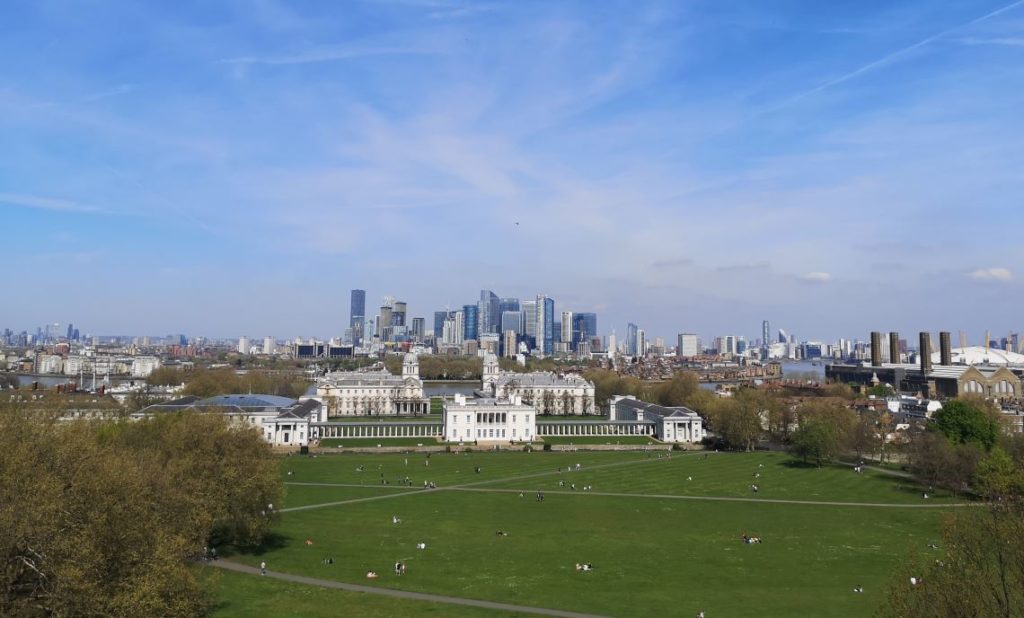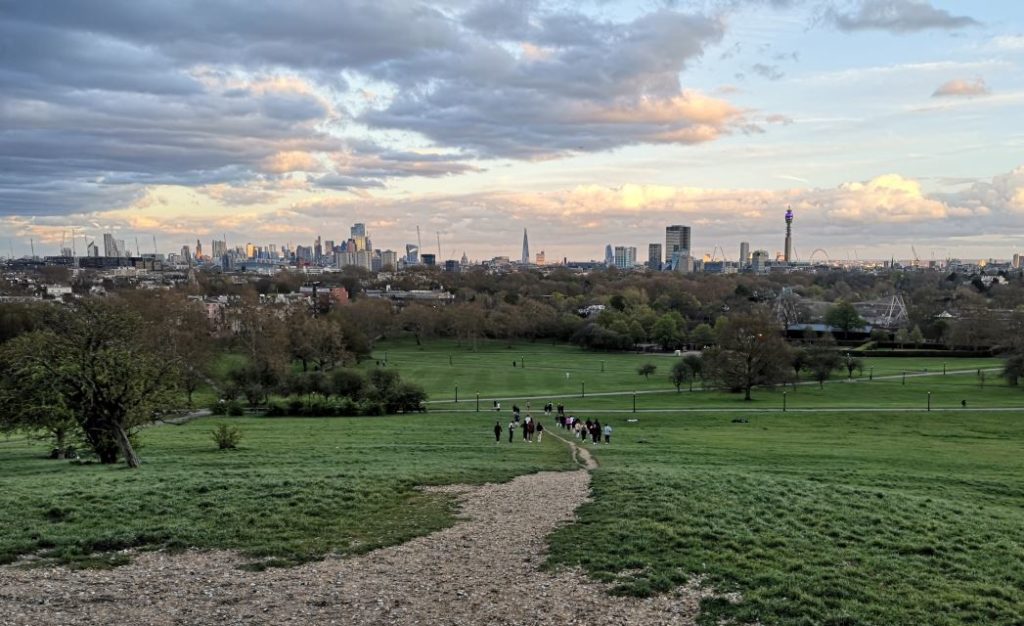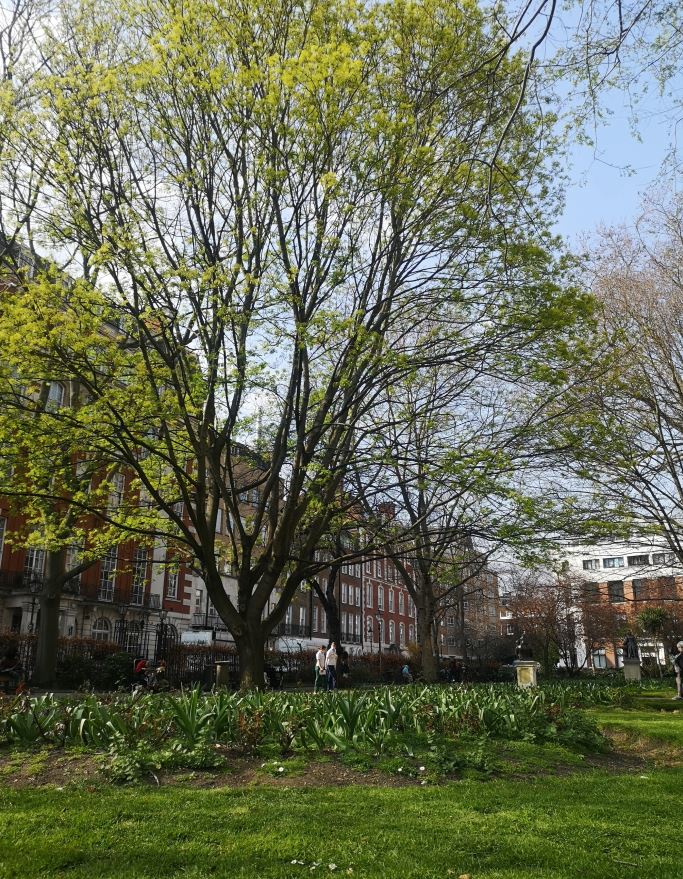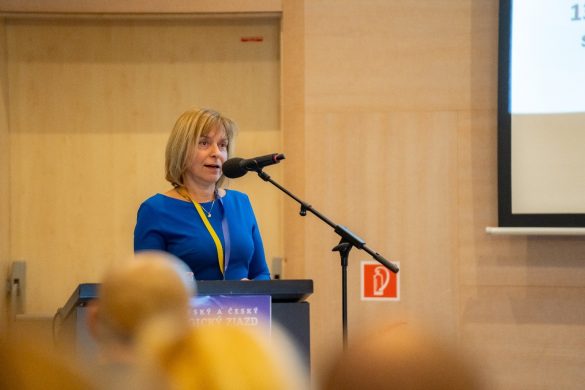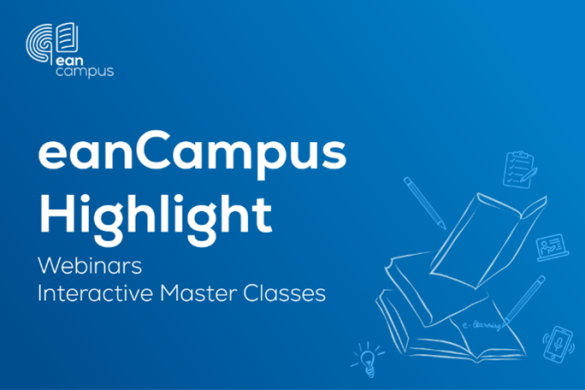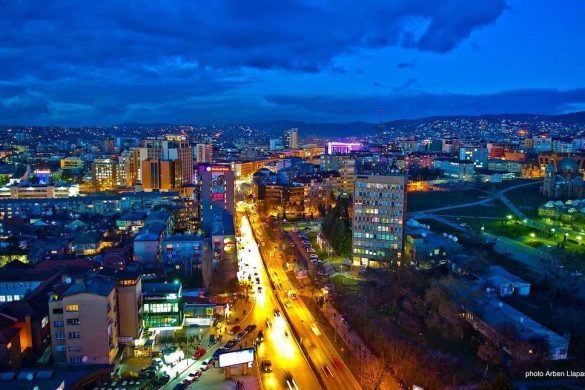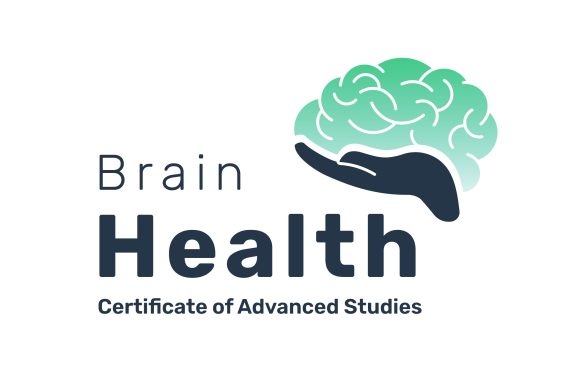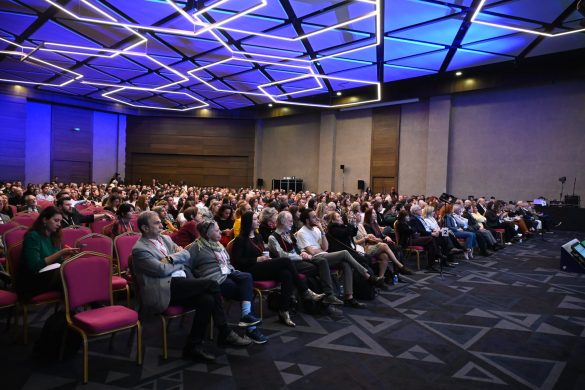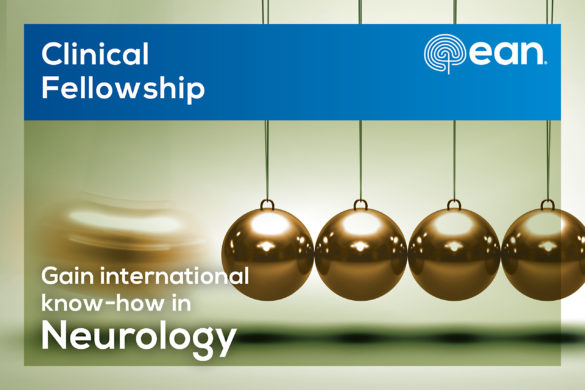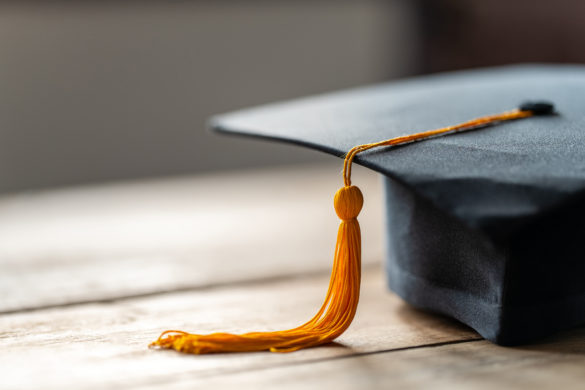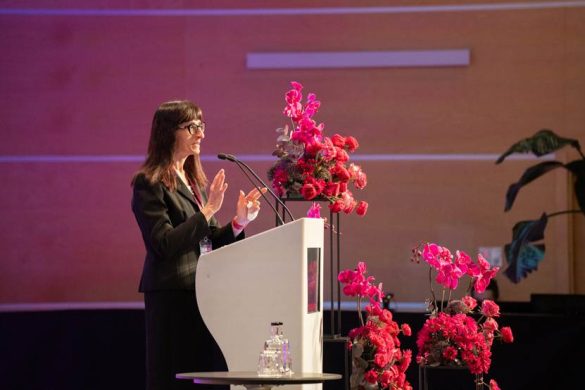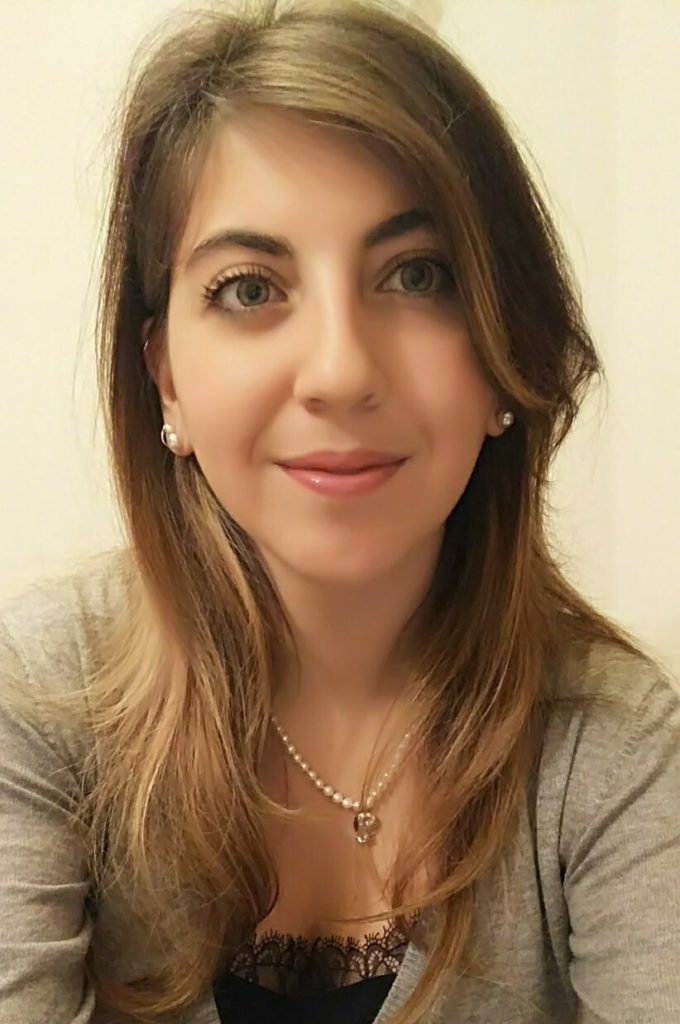
Greta Amore, Italy
Term of Fellowship: 17 March – 18 July 2022
Hosting department: ): Neurogenetics Laboratory, UCL Institute of Neurology, Queen Square, London, UK
Supervisor: Prof Henry Houlden
It is with great pleasure that I report on my wonderful experience at the Department of Clinical Neurology, Queen Square, London, enabled by the EAN Clinical Fellowship Programme.
I am a medical resident in Child Neurology and Psychiatry at the University of Messina. I had the opportunity to attend the prestigious Neurogenetics Laboratory and the Neurogenetics outpatient clinic at the Department of Clinical Neurology, Queen Square, London, under the mentorship of Professor Henry Houlden. It was a great pleasure and honor to work with him, as a great neuroscientist and a very competent clinician.
Since the very first day I felt truly welcome and included by Prof. Houlden and his whole team, and I was immediately involved in several research and clinical activities.
Particularly, I was involved in a research project focused on unraveling the neurogenetics basis underpinning rare clinical disorders of the evolutive age. I had the chance to shadow several experts of the field, and soon learn how to analyse and interpret exomes and how to do sanger sequencing to confirm candidate variants. It was all extremely interesting and stimulating and gave me the opportunity not only to acquire new skills, but also to make me feel like I could actively give my personal contribution to the lab, to the field, and, most of all, to patients’ families.
I also attended the neurogenetics outpatient clinic. I was particularly impressed by the number and variety of disorders that I was able to observe during the clinical consultations. During the visits I learned much more about neurogenetic disorders and genetic investigations and about the semeiotics of several neurologic disorders (particularly movement disorders), and I had the chance to exchange clinical opinions with experts in the field and improve my skills as a clinician. I truly appreciated the dedication, humanity and competence of all the physicians I had the privilege to work with.
I also took part in the weekly lab meetings organised by Prof. Hardy and Prof. Houlden, during which researchers shared their ongoing and finished projects and their results. I felt like these were extraordinary learning opportunities and occasions to exchange ideas in a stimulating and prestigious research environment that encourages people to think outside the box.
Overall, my period at ION helped me acquire new clinical and technical skills and improve my research methodology and attitude. Attending this stimulating working environment made me gain a whole new awareness of the neurogenetics field, with all its implications on scientific discoveries and patients’ quality of life, and on my personal attitudes and skills, making me re-discover the enthusiasm and the care in the assistance of patients affected by severe neurogenetic disorders.
I truly cherished the opportunity to attend this EAN Clinical Fellowship, as it was for me an overall enrichment, both from a personal and professional point of view. I will always be grateful to Prof. Houlden and his whole team for sharing their knowledge with me and for making me feel like an official member of their department, and to EAN for making it all possible.
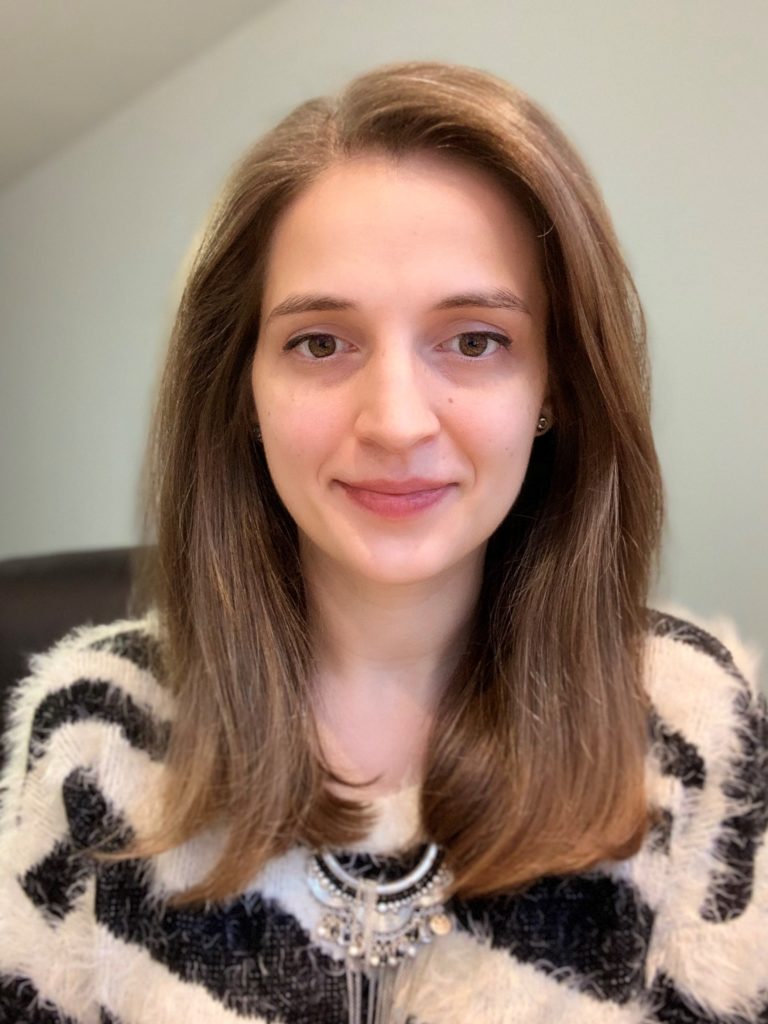
Valentina-Laura Irincu, Brasov, Romania
Term of Fellowship: 1 May – 24 July, 2022
Hosting department: Department of Biomedical and Neuromotor Sciences – Bologna University Italy
Supervisor: Prof. Pietro Cortelli
This year I had the opportunity to participate in the EAN Clinical Fellowship programme, for which I would like to thank the EAN. I would also like to thank Prof. Pietro Cortelli for welcoming me to his department and integrating me into his team.
During the three months that I spent in the Department of Biomedical and Neuromotor Sciences in Bologna I had the great opportunity to learn more about autonomic disorders and to deepen my knowledge on movement disorders, especially Parkinson’s Disease, Lewy body dementia and multiple system atrophy.
My daily activity began by attending the Tilt Table Test, which was supervised by Dr Pietro Guaraldi. During this activity I got to understand the different manoeuvres that can complete the test and its different signification and pathological meaning and how the catecholamine dosage is done. Also in the lab area, by the willingness of Dr Giovanna Lopane, I attended the Levodopa kinetic-dynamic test, where the patient’s motor response to the levodopa treatment is assessed in an objective manner.
As the day would unfold, together with an attending physician from the clinic, I participated in the consultations that took place in the outpatient clinics. Here, under the guidance of Prof. Pietro Cortelli, Dr Pietro Guaraldi, Dr Luisa Sambati and Dr Giulia Giannini, I got to see various pathologies, including patients with dysautonomia (with disease like pure autonomic failure, transthyretin amyloidosis) and movement disorders (PD patients with advanced disease, with motor and non-motor complications and DBS therapy, as well as patients with DLB, MSA, essential tremor etc.). Also, I attended the Botox and electromyography-guided Botox therapy, learning how it is administrated for patients with different types of dystonia and blepharospasm.
On Wednesdays I went to the neurology ward and observed how a regular day would go. First, the team had a meeting in which they discussed the cases and the investigations needed, and the attending physician debated the cases with the neurology residents. After that, the rounds would go on, with an extensive clinical examination and care for the patients, which ended with some further adjustments in the patient’s treatment.
Finally, on some occasions, I got the chance to go to the day hospital, where patients with neurological disorders come for treatment and additional investigations.
Overall, it was a fruitful experience where I have enriched my knowledge. I learned more about dysautonomia and movement disorders, from the clinical perspective, but also from the paraclinical point of view.
I would like to thank Prof. Pietro Cortelli and to the very nice and productive team of doctors and laboratory technicians from the Department of Biomedical and Neuromotor Sciences Bologna for their kindness and care. I learned many excellent things during my stay in Bologna.
Thank you very much EAN for making this possible!

